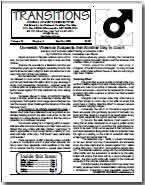Anti-shared parenting lobbyists in Australia, the U.K and U.S made much of Jennifer McIntosh’s “findings” that no overnight stays or joint physical custody is best for toddlers. Professor Lamb however, sheds light on a central problem with her research. Does she tend to present her information in a way favourable to her point of view? Rather than reviewing relevant information objectively, has the researcher-turned-advocate shaped the data to prop-up the outcome she wishes to achieve? Tangential to McIntosh’s misrepresentations of the literature, her attempt to prop up the numbers as guest editor of the Family Court Review is also revealed.
Abstract
The Family Court Review Special Issue edited by McIntosh provided a misleadingly narrow view of attachment theory and of previous attempts to explore the implications of that theory and related research for family court professionals. For example, the editor chose to interview professionals whose opinions seemed likely to accord with hers, and when they dissented, she failed to explore the implications. She thus represented Bowlby’s notion of monotropy as though it was an established and accepted fact; neither the research (which shows the idea to be incorrect) nor Bowlby’s own later disavowal of the idea were addressed, although the implications are profound. More generally, the extensive relevant scholarship was ignored and unrepresented, leaving the unchallenged focus on the editor’s own research and on opinions that accord with her own. As a result, the Special Issue became a platform for opinion, rather than a forum for critical examination of the literature.
Key Points for the Family Court Community:
- Most children in two-parent families form attachments to both of their parents at the same stage in their development.
- Relationships with both their mother and father profoundly affect children’s adjustment, whether or not they live together.
- Professionals need to be careful when generalising from research which may have involved families in circumstances quite unlike those experienced by the individuals they are trying to assist.
About the Author
Michael E. Lamb is a professor of psychology at the University of Cambridge. A former student of Mary Ainsworth’s, he has been studying the formation and consequences of attachments to mothers and fathers since the 1970s and has also investigated nonparental care as well as the role of children in the legal system. He received the 2003/4 James McKeen Cattell Award for Lifetime Contributions to the Application of Psychological Research from the Association for Psychological Research.
Source: A wasted opportunity to engage with the literature on the implications of attachment research for family court professionals (http://mhaweb.squarespace.com/storage/files/Lamb%202012%20rejoinder%20to%20McIntosh.pdf )


